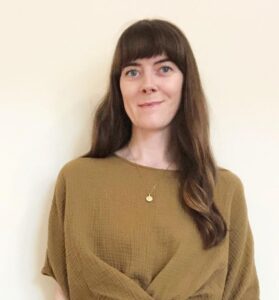
Visiting Assistant Professor, University of Illinois-Chicago
Website: https://www.sigridluhr.com/
Twitter: @sigridluhr
Topics of Expertise: Childcare (Providers and Systems) / Family Care (Adults, Children, & Disabilities) / Feminism & Families / Gender & Sexuality / Motherhood/Fatherhood / Public Policy: Child Welfare / Public Policy: Labor & Workforce / Transitions: Adolescents to Adulthood (teen sex) / Work & Family
Sigrid Luhr is a Visiting Assistant Professor at the University of Illinois-Chicago. She earned a PhD in Sociology from the University of California, Berkeley in May 2020 and a BA in Sociology from the University of Pennsylvania. Her research examines the reproduction of inequality within the workplace and family, with a focus on gender and social class. Much of her research examines the causes and consequences of workplace inequality across various sectors of the economy – from the low-wage service sector to the high-wage tech industry.
Sigrid’s current research draws on in-depth interviews with tech workers to understand how gender inequality is reproduced within the San Francisco Bay Area tech industry. The project moves beyond the supply-side explanation of the educational pipeline to understand the role that tech companies play in gender inequality. The project investigates multiple facets of the tech industry, from the language used to discuss workplace diversity, to the gendered role sorting within tech companies, to the various ways that women contort themselves to embody the image of an “ideal tech worker.”
In other research projects, Sigrid has studied social class differences in how adolescents learn about finances within the home, how mothers and fathers working in the service industry signal their status as parents at work, how scheduling practices affect the child care arrangements and parenting practices of parents working low-wage service jobs, and the experiences of middle-income families during the Great Recession.
Her research has been published in Gender & Society, Journal of Family and Economic Issues, Social Service Review, Journal of Family Studies, and Social Problems.
